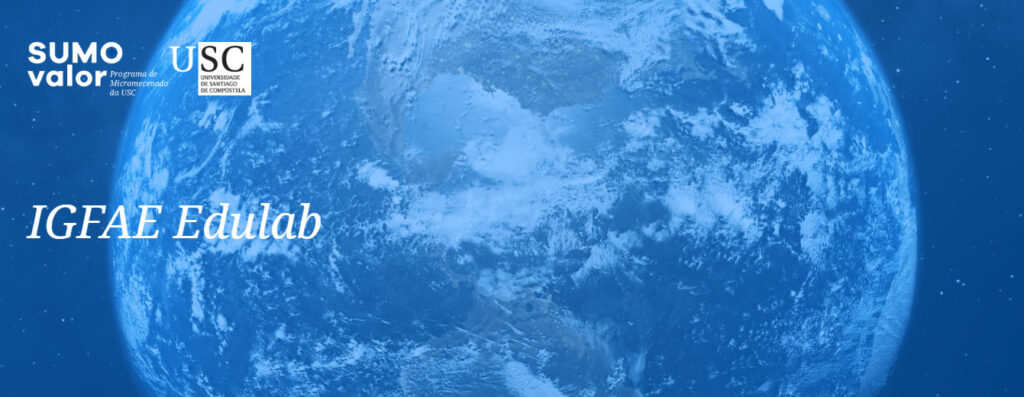The deadline to support two IGFAE educational projects on the USC’s crowdfunding platform “Sumo valor” is open until March 31
Sending a balloon to the stratosphere with a cosmic ray detector and making a map of the natural radiation received by high school students in Galicia are the two IGFAE projects that can become a reality thanks to donations from citizens. These and other activities are part of “Sumo valor”, the new crowdfunding pilot program promoted by the University of Santiago de Compostela, which was created with the idea of involving all of society, companies and institutions in the projects and services the USC offers in research, culture or sports, as well as transferring the knowledge generated as a result of its activity.
The first project proposed by IGFAE, “Measuring cosmic rays with a detector installed in a stratospheric balloon”, will be coordinated by the researcher Cibrán Santamarina and will have the collaboration of NOSA, the Galician School Space Agency. This educational project, made up of six public secondary schools since the 2014/2015 academic year, annually sends a stratospheric capsule that performs a suborbital flight. The idea is to install the particle detector in its capsule for launch this year and distinguish the primary cosmic rays (protons), which do not reach the Earth’s surface, from the secondary particle cascade (muons), which do reach it.
With DRAMIES (Dose of environmental radiation in IES), the second IGFAE project selected in “Sumo valor” is intended to make a map of the natural, external and individual radiation received by high school students in Galicia. Coordinated by the researcher Dolores Cortina, Galician centers will be invited to IGFAE where they will be informed about the institute, natural radioactivity and how the project will be developed. Afterwards, dosimeters will be delivered that the students will carry for two weeks so they temselves can analyze the data of the total dose to which they were exposed. With these measures, accompanied by a record of the activity carried out by the participants, a detailed statistical analysis of the dose received per person can be performed, easily discriminating, for example, the dose they are receiving in their classrooms, at home, etc.
Both projects are part of EduLab, a new program with which IGFAE intends that the agents of the educational system, research staff of the center and other interested parties, analyze innovative ways of introducing in all education levels techniques, content and analysis structures of the experimental sciences, in particular of Physics and the topics included in the scientific agenda of the institute.
How to contribute
Individuals or legal entities interested in making a micro-donation of assets (tangible or intangible), or in their case of rights, can contribute filling out an online form to assess their acceptance until March 31.
